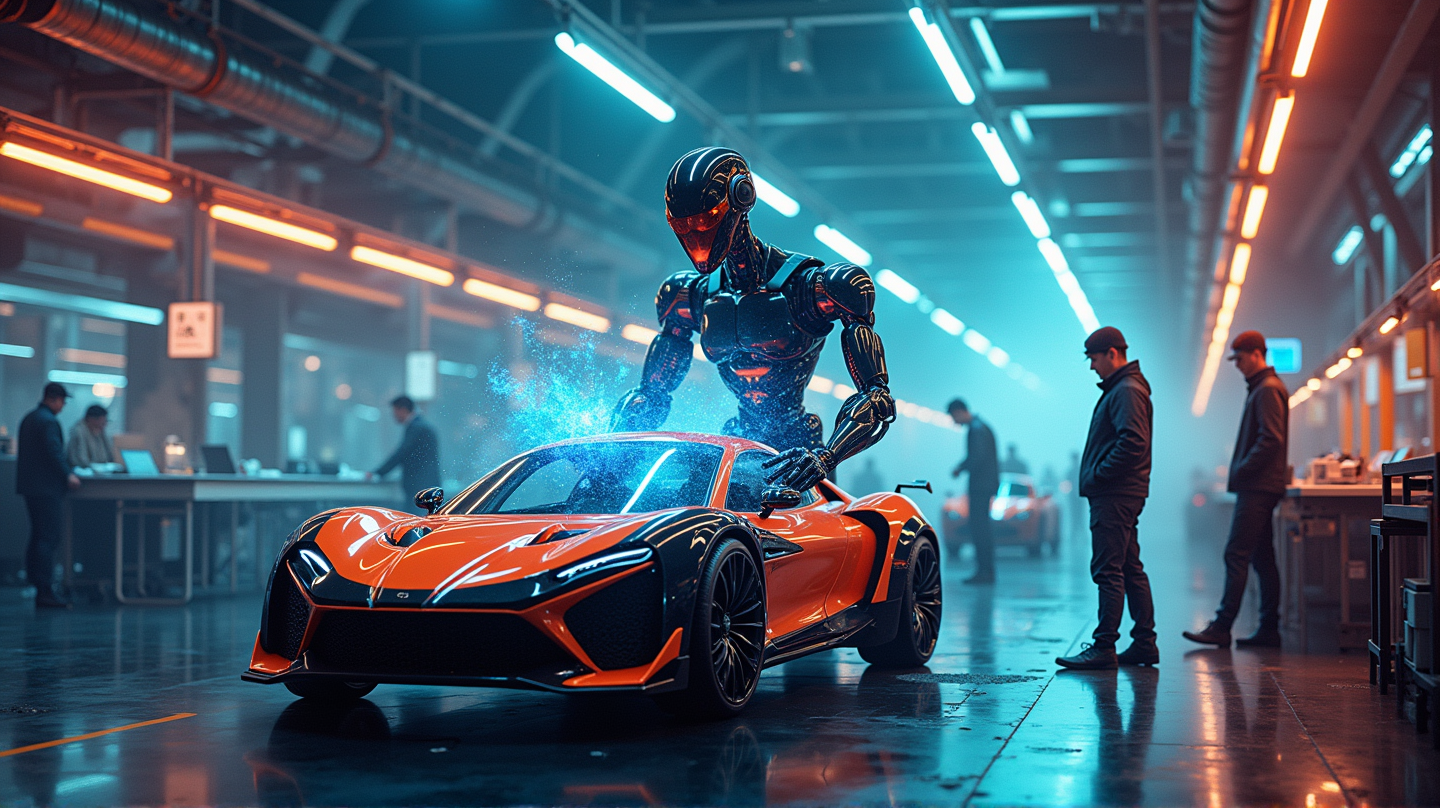A Brave New World for Automotive Manufacturing
In the rapidly evolving world of automotive production, humanoid robots and AI systems are not just concepts of the future but are actively reshaping how vehicles are built today. Companies like BMW, Ford, and Toyota are at the forefront of this transformation, harnessing advanced robotics and AI to not only boost output but fundamentally change the workforce dynamic within the industry.
Navigating Automation with Human Skill
The introduction of humanoid robots brings with it an opportunity to explore a synergy between advanced machines and human expertise. While the traditional manufacturing environment relied heavily on fixed robotic systems, today’s technology advocates for robots that can learn, adapt, and collaborate with their human counterparts. According to Automotive Manufacturing Solutions, these advancements allow carmakers to solve labor crises while also accelerating production.
Democratizing Robotics in Production
Historically, automation was a privilege of large-scale manufacturers, limited by financial constraints and integration complexities. However, the landscape is changing with modular approaches like low-code systems and robots-as-a-service models, allowing more players to participate in the robotics revolution. At industry events like AMNA 2025, companies such as Gestamp and ABB emphasized these trends as pivotal in democratizing access to automation technology.
AI: The Heart of Modern Manufacturing
With the integration of AI, the automotive industry is witnessing a convergence of machine precision and cognitive ability. AI-enhanced systems are transforming quality control processes, enabling microscopic defect detection and ensuring higher standards of production excellence. This is exemplified by BMW’s Regensburg facility, which employs AI for assembly defect detection, representing a significant leap from traditional quality assurance methods.
Human Capital: The Lifeblood of Automation
As automation technology continues to evolve, so too must the human skills that interact with it. The automotive sector is witnessing a redefinition of roles, with manufacturers investing in the training and upskilling of their workers. For instance, Toyota’s training academy in partnership with Rockwell Automation focuses on preparing the workforce for cutting-edge production environments by bridging the gap between existing human skills and advancing technology.
Automation: A Strategic Necessity
Faced with demographic challenges and shifting global trade dynamics, automation has become not just an opportunity but a necessity. As Baby Boomers retire and labor markets fluctuate, automakers are turning to robotics and AI as strategic assets to maintain operational fluidity and competitive advantage. Yet, the success of these initiatives relies heavily on addressing workforce anxieties and ensuring a smooth integration of technology.
Embracing a New Era
The journey toward a fully automated automotive industry is well underway, marked by trust in robotic capabilities across production, support, and research roles. While the endpoint of this transformation remains uncertain, the path is clear: those who view automation as an amplification of human potential rather than a replacement will lead the charge into this new industrial revolution.
In conclusion, as Michael Nikolaides of BMW eloquently states, “AI is opening new worlds of possibility,” heralding a future where the integration of human expertise and machine intelligence will drive automotive production to unprecedented heights.
